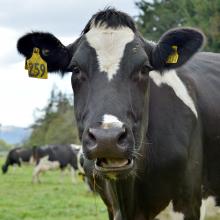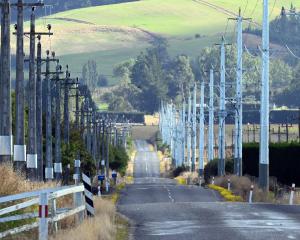
According to Dunedin City Council statistics there are a "tad" more than 17,000 registered dogs in the city.
If they "poop" an average of say, 300g of dung a day, it would total more than five tonnes, on account of all the unregistered dogs.
Who knows how many of these "coat tailers" dwell in suburbia?
Run that daily doggy "poop" total over a year and it amounts to at least 1825 tonnes.
Who can say exactly where it all goes but much must end up on the pavement. In London, a couple of hundred years ago, poverty-stricken old women could eke out some money by cleaning the streets of dog dung then known as "pure".
At about a penny a bucketful the "pure" was used in processing leather.
According to agriculture scientist Clive Dalton, who among other things is an expert on farm working dogs, writing in the NZ Geographic magazine,
Manukau with 21,000 registered dogs daily dropped 10 tonnes a day calculated at 500g a ‘‘poop’’ — or about 3650 tonnes a year.
According to Dr Dalton, more than a quarter of households owned one or more dogs.
Nationally, 17 years ago there were more than half a million registered dogs to 343,443 owners with an estimated 100,000 unregistered.
Given about 20% of Dunedin’s population is aged more than 65 years, and their desire for a "genetically altered" wee ankle biter, it would have to be capable of 300g a day.
This leaves the question of what happens to all the poo?
Some might go into the garden compost, some into the weekly rubbish bag, some on to the streets into gutters to pollute the drainage water, some on the banks of streams and rivers.
Considering this potential source of E. Coli and campylobacter, it would be best if city folk didn’t criticise the real producers of wealth and their grass-eating livestock.
- Jim Moffat is a former farmer, who now sells books in Palmerston.











